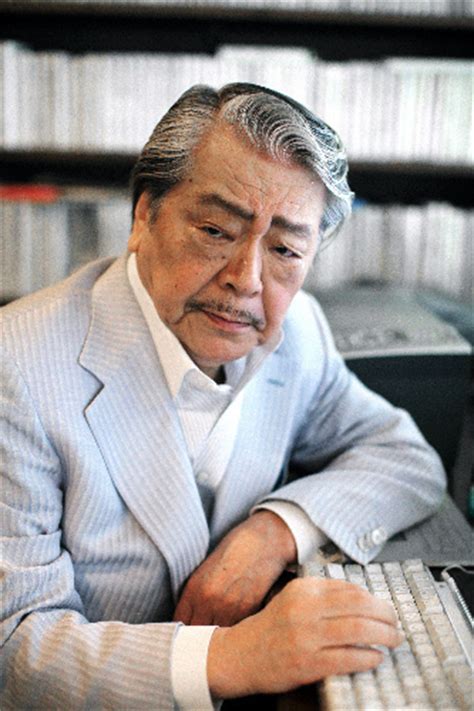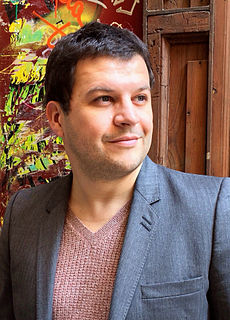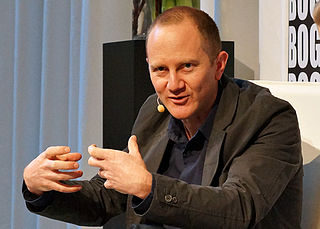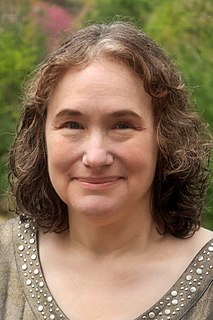A Quote by Daphne du Maurier
I could fight with the living but I could not fight the dead. If there was some woman in London that Maxim loved, someone he wrote to, visited, dined with, slept with, I could fight her. We would stand on common ground. I should not be afraid. Anger and jealousy were things that could be conquered. One day the woman would grow old or tired or different, and Maxim would not love her anymore. But Rebecca would never grow old. Rebecca would always be the same. And she and I could not fight. She was to strong for me.
Related Quotes
And is an ending always bad? it asked. Must not all things, even worlds, someday end?"There is no need to hasten that end," Vin said. "No reason to force it."All things are subject to their own nature, Vin, Ruin said, seeming to flow around her. She could feel its touch upon her - wet and delicate, like mist. You cannot blame me for being what I am. Without me, nothing would end. Nothing could end. And therefore, nothing could grow. I am life. Would you fight life itself?
You could run from someone you feared, you could try to fight someone you hated. All my reactions were geared toward those kinds of killers – the monsters, the enemies. When you loved the one who was killing you, it left you no options. How could you run, how could you fight, when doing so would hurt that beloved one? If your life was all you had to give your beloved, how could you not give it? If it was someone you truly loved?
She was tired of hugging pillows, counting on blankets for warmth, and reliving romantic moments only in her dreams. She was tired of hoping that every day would hurry so she could get on to the next. Hoping that it would be a better day, an easier day. But it never was. Worked, paid the bills, and went to bed but never slept. Each morning the weight on her shoulders got heavier and heavier and each morning she wished for night to fall quickly so she could return to her bed to hug her pillows and wrap herself in the warmth of her blankets.
If he looked into her face, he would see those haunted, loving eyes. The hauntedness would irritate him - the love would move him to fury. How dare she love him? Hadn't she any sense at all? What was he supposed to do about that? Return it? How? What could his calloused hands produce to make her smile? What of his knowledge of the world and of life could be useful to her? What could his heavy arms and befuddled brain accomplish that would earn him his own respect, that would in turn allow him to accept her love?
She could see the name Fukamachi on a shiny name-plate by the door of the house, but it was a name that meant nothing to Kazuko. And at that moment, in her heart, she began to dream of meeting someone. Someone special who would one day walk into her life. Someone she would instantly feel she had known for years. Someone who would feel the same about her.
There was a warmth of fury in his last phrases. He meant she loved him more than he her. Perhaps he could not love her. Perhaps she had not in herself that which he wanted. It was the deepest motive of her soul, this self-mistrust. It was so deep she dared neither realise nor acknowledge. Perhaps she was deficient. Like an infinitely subtle shame, it kept her always back. If it were so, she would do without him. She would never let herself want him. She would merely see.
The adversary she found herself forced to fight was not worth matching or beating; it was not a superior ability which she would have found honour in challenging; it was ineptitude - a grey spread of cotton that seemed soft and shapeless, that could offer no resistance to anything or anybody, yet managed to be a barrier in her way. She stood, disarmed, before the riddle of what made this possible, she could find no answer.
I think my ideal man would speak many languages. He would speak Ibo and Yoruba and English and French and all of the others. He could speak with any person, even the soldiers, and if there was violence in their heart he could change it. He would not have to fight, do you see? Maybe he would not be very handsome, but he would be beautiful when he spoke. He would be very kind, even if you burned his food because you were laughing and talking with your girlfriends instead of watching the cooking. He would just say, 'Ah, never mind'.
She stared at herself in the mirror. Her eyes were dark, almost black, filled with pain. She'd let someone do that to her. She'd known all along she felt things too deeply. She became attached. She didn't want a lover who could walk away from her, because she could never do that - love someone completely and survive intact if her left her.
A woman who could always love would never grow old; and the love of mother and wife would often give or preserve many charms if it were not too often combined with parental and conjugal anger. There remains in the face of women who are naturally serene and peaceful, and of those rendered so by religion, an after-spring, and later an after-summer, the reflex of their most beautiful bloom.
Sometimes she wished for someone she could tell about her problems, just to be able to say, ‘I’m in love with a man and I can’t have him.’ But that would only lead to questions she couldn’t answer, so she kept the secret and the pain inside, hoping someday she would no longer feel as if half of her were missing.






































